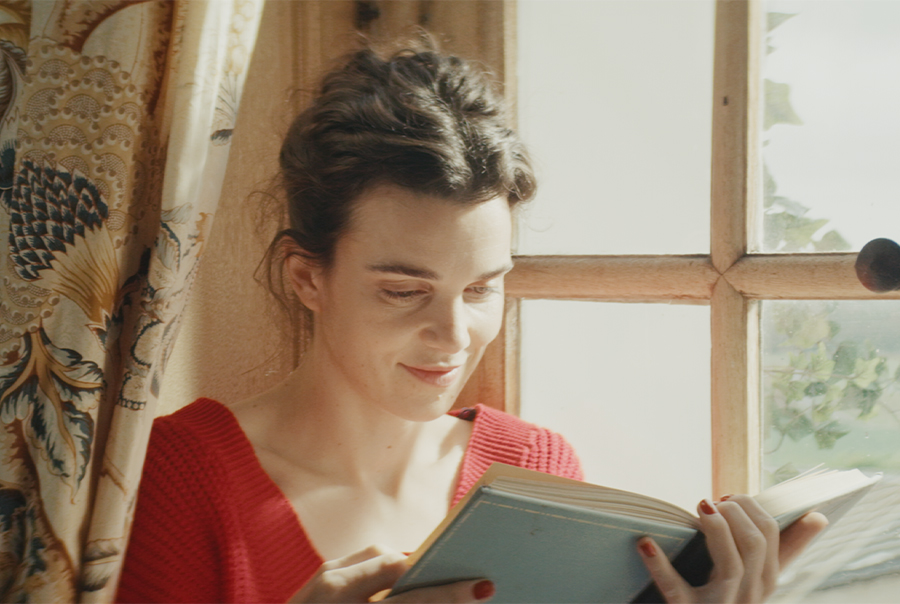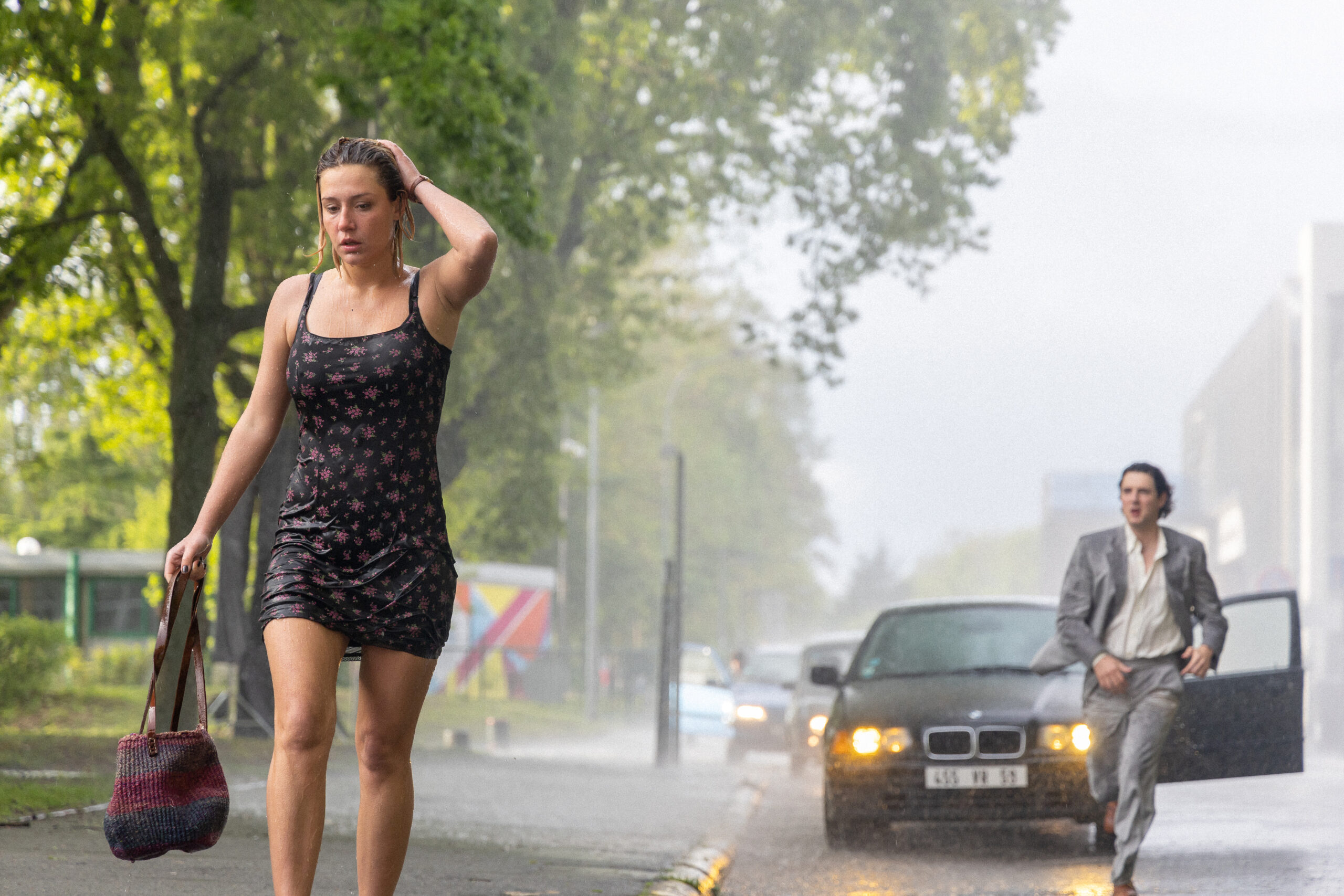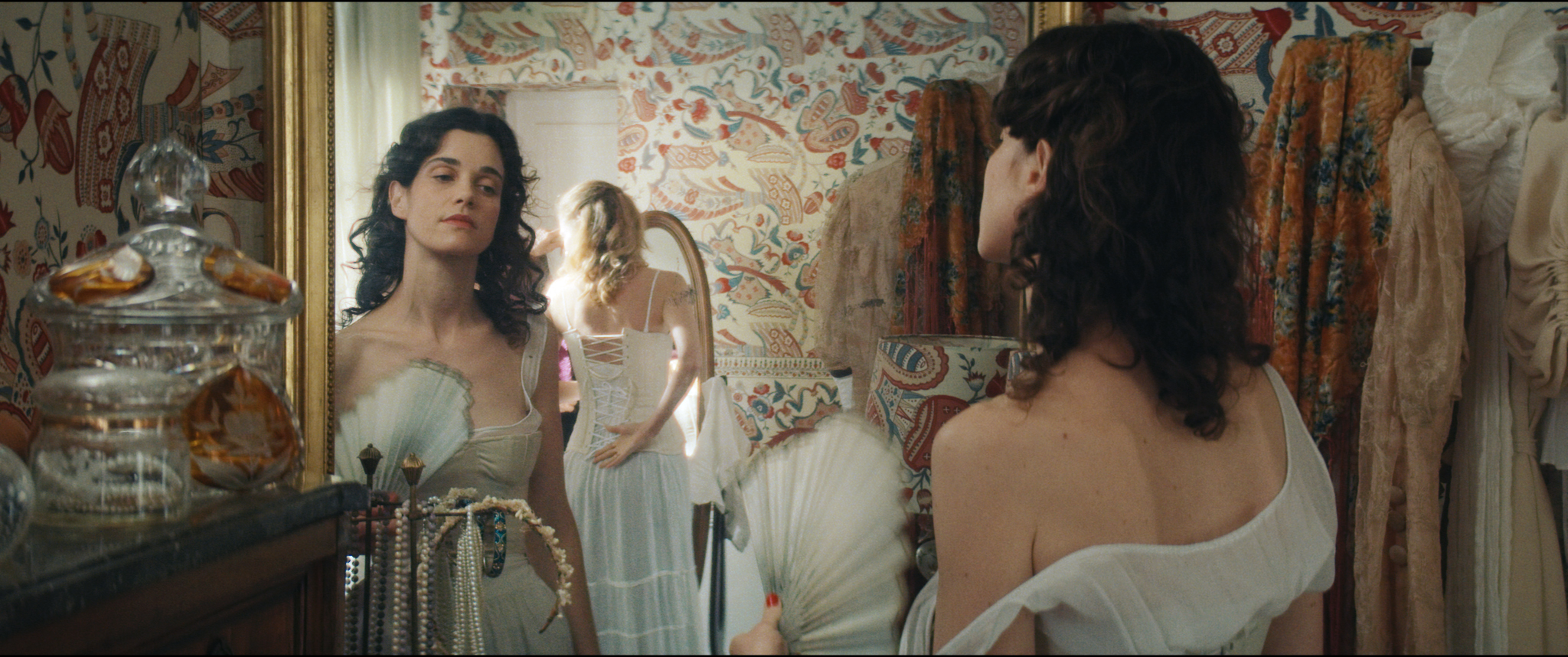

Fergus Grady in Conversation with North & South
29th May 2025
Fergus Grady is a producer and director who co-created the critically acclaimed documentary Gloriavale: New Zealand’s Secret Cult, and Camino Skies. He is also the director of the Intrepid French Film Festival Aotearoa 2025. Grady lives in Tāmaki Makaurau with his fiancee, costume designer Sacha Young. He talks with Sarah Daniell about passion, cheese and the last film that made him cry.
By Sarah Daniell
North & South: I was watching Trois Amies, Three Friends, last night and the character Rebecca says, ‘we are an interview society’. We’re constantly grading each other. Is that how you feel when you come into an interview?
Fergus Grady: It is. I’m just trying to keep my eyes open. I’ve just flown back from France yesterday. So my guard is down, but hopefully I’ll be coherent.
SD: We won’t have to do the entire interview in French.
FG: I wasn’t practicing when I was there, I mean, it’s also a very busy time so even getting a chance to order lunch feels rushed. One day I’ll go back and immerse myself, throw myself in the deep end, but it’s the busiest week of the year.
SD: What are you looking for in a French film?
FG: Something different, something that we don’t see in our regular lives in New Zealand. I think we’re a curious bunch and what the French export well, we love, you know? Romance, wine, cheese, beautiful people, beautiful countryside. There’s a very sexy image of the country that’s quite different to what we know in New Zealand.
SD: I also saw Holy Cow, and it reminded me a little of some New Zealand cinema. It has stunning countryside and cinematography, but they weren’t in a rush to explain things, which is characteristic of American cinema or television – there are notable exceptions – but French film makers are quite happy to let the dialogue breathe.
FG: Yeah and the actors, or in this case, the non-actors [in that film] interact with the natural environment and there’s that authenticity from the performances, even though the non-actors wouldn’t really understand that they’re performing. They’ve been directed in their natural environment. So I think something like Holy Cow does kind of arc back to the Ken Loach sort of cinema as well, where it’s on the fly, there’s no rehearsals. We’re very fortunate, not only as a festival to be able to invite the film, but with my other hat as a distributor, meant we were able to secure the rights for that. So it’s been a real joy to work on as a distributor and as a festival director.
SD: How do French films inform your own approach to filmmaking?
FG: I think with Camino Skies, we were constrained by budget and time. And with Gloriavale, we were constrained by COVID. So I’d like to think that there was some sort of artistic pasiche or chapeau, a nod to French cinema. It’s a documentary so when it comes to practicality, you’re just kind of treading water a lot and if I was to say there was an influence, it would be a sort of general observational documentary, from most countries that have been influenced by that sort of genre of fly-on-the-wall cinema. But the French are so prolific that it’s hard to not be influenced by them. I guess one of the great things about the festival is we are watching hundreds of films per year that inform our kind of programming curation. Whereas when we ran the Scandinavian Film Festival just for one year, we were really fighting to get a lineup just because of how limited the production industry is there. But with the French, you know, we could almost triple the lineup with quality cinema. And that’s probably one of the hardest parts of the job is to say no to really good films. But we think we’re looking out for what the average New Zealander wants to see on the big screen.

Beating Hearts
SD: The festival is heading to smaller towns, like Rangiora, Takaka, Waiheke Island and Whanganui. What can those audiences expect?
FG: I think it’s really interesting talking about Holy Cow, because I think that film could easily be remade in, in Waikato or Manawatū. It’s a story that does ring true to the experience of a rural New Zealander in those sort of dairy rich areas. I’m really interested to see how Holy Cow is received, but I expect the films like The Count of Monte Cristo, Jane Austen Wrecked My Life to be the big winners in those places because … they’re almost reaching a new audience. They almost cross over into a mainstream audience because you have everything from action to drama to romance. And that is very appealing for the everyday cinema goer, regardless of where they’re based.
SD: The festival is particularly well timed with all the crazy upside-down-world stuff going on. You can escape even if you can’t get on a plane and feel like you’re getting something nurturing for your spirit.
FG: Absolutely. I think we deliberately moved the dates of the festival to June to make the festival more appealing for an audience that might not get a chance to go to France for summer and escape our winter and have an amazing time indoors with a glass of wine and share that experience with an audience, in a communal space. I think like 10 percent of our audience is French speaking. We do lose out on some kind of box office with them, as they do travel into France, but I think at the moment with the current economic situation, to pay $20 is a really nice way to spend a couple of hours on a weekend or even a matinee during the week. It’s a real nice journey.
SD: Are French audiences different to New Zealand audiences?
FG: Yeah, I mean, we are predominantly watching next year’s films in Cannes. And I don’t get to go to as many premieres as I would like. So I’m mainly watching the films with other distributors and festival programmers from around the world, but there is a level of pride that French nationals have with their cinema. And I think when something really hits home. They’re willing to laugh and cry and celebrate that storytelling or filmmaking more than what we are used to. Although in saying that my experience of going to Tinā … I’ve seen it three times – my fiancee did the costumes for the film so I’m kind of along for the ride with her… was as close as I can relate to the experience of watching a film in Cannes for the first time in terms of a community and in New Zealand Pasifika community are a very proud bunch. I can relate to that, but I think New Zealand in its history probably hasn’t been able to celebrate cinema like what we’ve been able to do with Tinā of late.
SD: When do you first recall being really captivated by a film that made a lasting impression?
FG: I watched a lot of cinema. I was lucky my parents would make it a regular habit of going to the video shop on a Friday night, and we would get three or four films that we would watch over a weekend. My brother and I were into that at a young age. But probably the most awakened experience I had was going along to a film .. we had actually messed up the time … and we ended up watching Donnie Darko completely blind with no trailer, or any kind of information. That was pretty profound. Jake Gyllenhaal’s character was kind of similar to my age at the time. That changed the direction I was going from journalism to filmmaking. I was very lucky that when I did see that, I changed my university … I ended up going to RMIT in Melbourne which was one of the best for film theory. That’s probably where I had all of my discoveries of films that influenced what I love today.
SD: Looking at the media world right now, that ‘sliding doors’ moment seems to have worked for you.
FG: Filmmaking is not not a walk in the park, but I think both are noble professions.
SD: Do you have a favorite ‘one-to-watch’ or veteran French film star?
FG: Veteran film star … there are so many. That’s what makes French cinema great because it’s not just like the Tom Cruises of the world. You’ve got a range of stars that, regardless of how old they are and how many films they’ve done, deliver incredible performances. Let’s just say if, if Catherine Deneuve was in a film, we would programme it regardless of how good it is. Juliette Binoche. Those two are kind of the godmothers of the French film industry and bring in an audience, regardless of the quality of filmmaking. Recently, I think Laure Calamy has been our sort of festival superstar. We were lucky enough to play Antoinette in the Cevennes as opening night 2021, which was our first year running the festival. It blew the doors down in terms of how an actress can create such strong word of mouth from her performance. That film still is the most attended film in the festival’s history. So, yeah, those three actresses, I would pretty confidently say they’re kind of royalty of French cinema, especially now I. I do worry that Catherine Deneuve … we might not see many more films from her. I know there’s one coming out next year, which we’d love to secure, but yeah, I think she’s definitely in the twilight of her career.

Jane Austen Wrecked My Life – Camille looks dreamily into mirror in ball dress
SD: A rich rich catalogue though to celebrate.
FG: Absolutely. And I hope there are more films. I hope she does continue to work because she’s just incredible.
SD: Much is said about the notion of French cultural superiority … you know, a country that makes 415 million kinds of cheeses immediately assumes justifiable superiority – a cultural audaciousness. Do you feel a sense of that when you’re over there in Cannes?
FG: Referring back to pride and identity, like Holy Cow in the Jura region … that’s where Comte is from, so if you’re a farmer from there or you’re a cheese maker from there, that would be the first thing you would tell someone if you were traveling overseas, ‘I’m from the Jura, you know, from the famous cheese making region?’ So, I think there’s a level of sovereignty and ownership of being from a particular region and being French, and the history of France as well, politically. How they’ve cultivated those industries, as agricultural industries. How well they’ve exported them and how revered the brands are everywhere in the world. So they’ve done an amazing job, and we’re just beneficiaries of that with French cinema, because to me, that’s like they’re just showcasing the best of France and most of the films that they make.
SD: They’re passionate.
FG: Yeah and they’re very defensive about protecting what’s theirs as well. So it’s great. We’re like the curators of something that they’re super protective of but they love their stories to be shared as well.
SD: How do women in France compare in terms of industry representation either as filmmakers, writers, the movers and shakers – with Aotearoa, do you think?
FG: I mean, no one likes to talk about quota systems, but I think it’s happened more naturally in France than it has here. What I noticed particularly with Holy Cow’s, Louise Cavoursier, she’s a first-time filmmaker. You know, if she was in New Zealand and she’d made a couple of short films and was trying to get her first feature financed, it could take her between eight years and forever to get that made and for someone to take her. Whereas obviously it happened fast and Louise is still young. She’s got a huge career ahead of her, and who knows the body of work that she can produce. I think that taking a punt or taking a shot at someone young and energetic happens more often, say, in countries that produce more films. But also, I think the French understand that if it doesn’t work, it’s not the end of the world. That producer will still make another film and that director may make another film, but in New Zealand, there’s a lot of paranoia about, you know, you have one shot or you have one opportunity to make something that’s worthy. And if it doesn’t work out, you may never work again. So I think, yeah, I think all of those things kind of influence how many new female directors or writers get opportunities or get their break. But at the same time, you know, there are a lot of great female directors working in Aotearoa. So they all had their breaks at some point, like Jane Campion, Niki Caro. The list can go on, but I think the French are just so prolific and thousands of films produced every year, that they have a better profile than what we’re used to.
SD: It’s a bit like making cheese … an exercise and patience but you’re not going to be slaughtered if your first one doesn’t quite mature or hit the right note.
FG: Exactly. And I think they’re more likely to make films, you know. Every two or three years. I was reading the article on Christine Jeffs in North and South [https://northandsouth.co.nz/2024/10/16/making-a-mistake] and Christine’s only made a handful of films over a long period of time. So I think there’s more opportunities overseas and that’s where New Zealand directors will go and seek out those opportunities.
SD: When did you last cry in a film?
FG: Like, last week. Yeah, no doubt. It wasn’t a French film, I’m ashamed to say – Sentimental Value – but I think if the film doesn’t win the Palme d’Or, I’ll be surprised. It’s by Norwegian director Joachim Trier. There was a lot riding on this film, but it didn’t disappoint. It’s better than his film The Worst Person in the World, in my opinion. [The Palme d’Or went to Iranian director Jafar Panahi, for It Was Just An Accident, and Trier won the Grand Prix for Sentimental Value]. I think emotion is part of the experience with French cinema. It’s done exceptionally well and I think authentically.
SD: You are a French cheese. What are you?
FG: Well, it’d be rude not to plug comte, which is central to Holy Cow. I’ve had quite a lot of it recently. But I can’t really go past soft cheeses. I really, really enjoy all the soft cheese. We’re lucky that Maison Vauron is a sponsor of the festival. You could spend your whole weekend there drinking wine and eating cheese, and it’d be a weekend well spent. The guys there are trying to educate me on the regions and the provinces that have the specialties. I’m really a big fan of the soft cheeses and I’m still a student and need to kind of graduate from my cheese.

All Stirred Up
SD: So you’re a melty kind of person best served at room temperature?
FG: If the cheese is melting and it’s served up on warm bread or with, you know, some sort of honey or dried fruit, there’s nothing better.
SD: The festival is showing for the first time in a number of small towns in Aotearoa. It’d be a good roadie, to go to all those different places and see a film in every cinema in every town.
FG: They’re all great. I really love the Masterton screening room. I’m not sure if you’ve been there. But, it’s worth it. They have a lovely restaurant and just two boutique cinemas. It’s a worthy stop if you’re tiki-touring through New Zealand.
For more on the Intrepid French Film Festival Aotearoa, 2025 visit: frenchfilmfestival.co.nz
